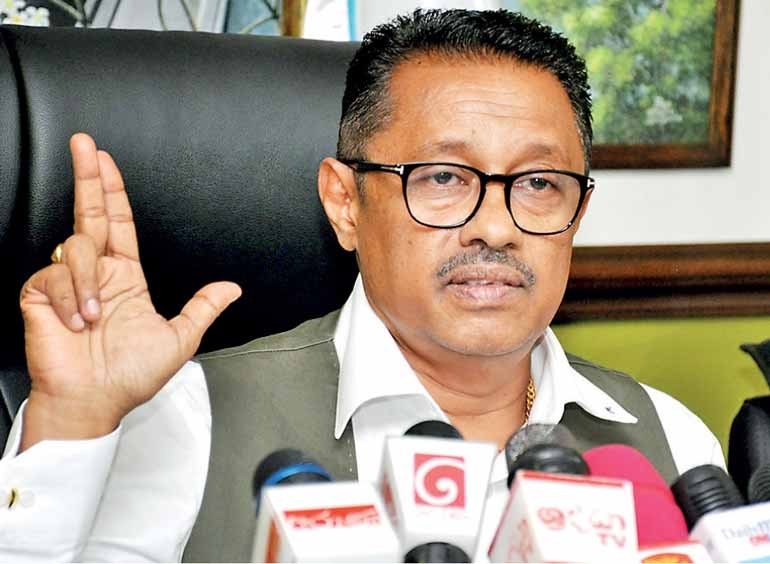PUCSL Chief sticks to his guns over electricity tariff hike

Public Utilities Commission of Sri Lanka Chairman Janaka Ratnayake yesterday reiterated that it is not considering any tariff hike at present and suggested the Government look into actual financial data of the Ceylon Electricity Board to improve the cash-flow management before restructuring.
Speaking at a special media briefing yesterday he said the proposed tariff hike will have no favourable impact on the economy; rather it would further burden the battered public and enterprises.
“Last week the Cabinet was to take a decision and fortunately it was delayed till Monday. This proposal to revise the electricity tariffs upwards was not based on proper calculation assumptions, demand, supply and other factors. It was not prepared as per the norms and the permissible procedures,” he charged.
“The proposed Cabinet proposal to increase the electricity tariff was based on a presentation by CeB’s new general manager, with a female engineer and the Power
and energy Ministry Secretary, completely ignoring the legal procedure,” he revealed.
“Luckily the Cabinet of ministers did not take a decision, had they approved the proposal it would have been based on wrong facts and figures. Thus, we urge all the Cabinet of ministers not to take a decision based on the illegal proposal. But I will rather go through the correct procedure and right channels to consider the decision,” he explained.
Ratnayake said that even if a decision is taken by the Cabinet of ministers at its meeting next Monday, the Commission will not accept it. “The Commission has powers vested with the Act to reject the Cabinet of ministers’ decision.
Therefore, we urge the public not to panic about the impending tariff hike because the Commission is not considering any tariff hike at this moment,” he assured.
Asked if the Cabinet of ministers has vested powers to overrule the PUCSL decision to challenge the tariff hike, he said the PUCSL Act is the law, and it cannot be twisted as and when they want.
“The only way they could bypass the PUCSL to increase tariff is only through changing the Act,” he added.
With the tariff hike the Commission approved in August, Ratnayake said the CEB is clearly making an operational profit, and the dollar needed to import raw materials such as coal and fuel has not appreciated; thus, there is no need for an upward tariff revision at present.
“Before the tariff revision, the CEB had a cash flow of Rs. 19 billion and post-tariff hike it has increased to Rs. 35 billion per month. Against this backdrop, the Government needs to look into better financial management practices before going into a restructuring of the CEB. So that the Rs. 35 billion earned monthly from electricity users by the CEB is managed properly,” he pointed out.
Citing figures tweeted by Power and Energy Minister Kanchana Wijesekera earlier this week noted that despite the cumulative net profit being negative Rs. 117,182 million, PUCSL Chief said the Treasury had already given Rs. 80 billion as a subsidy to the CEB in 2022.
He also charged that through the proposed Cabinet paper, the CEB is only targeting the low-electricity users who utilise below 30 units, 60 units, and 90 units. In certain categories, he said the proposed tariff hike is 1,100%, whilst, for SMEs, they are trying to increase the tariff by 250% and in religious places by 500%.
“The bizarre fact of this proposal is that the CEB is trying to increase the tariff of the low-user category, which accounts for about five million electricity users who take up below 90 units per month. The proposed tariff hike will also increase the industrial category including tourist hotels by 150%. All of this will deteriorate the crisis-hit economic activities further,” Ratnayake said.
PUCSL Chief highlighted that the benefits can be passed on to the low-electricity users as the Government also earns sufficient income via imposing taxes on raw material imports such as VAT, and PAL on crude oil, diesel and coal.
With 25 coal shipments expected from 12 February, he asserted that Sri Lanka can avoid an eight-hour power outage from the existing two and 20-minute demand management program. He also said the Norochcholai power plant will also resume operations from Sunday.
